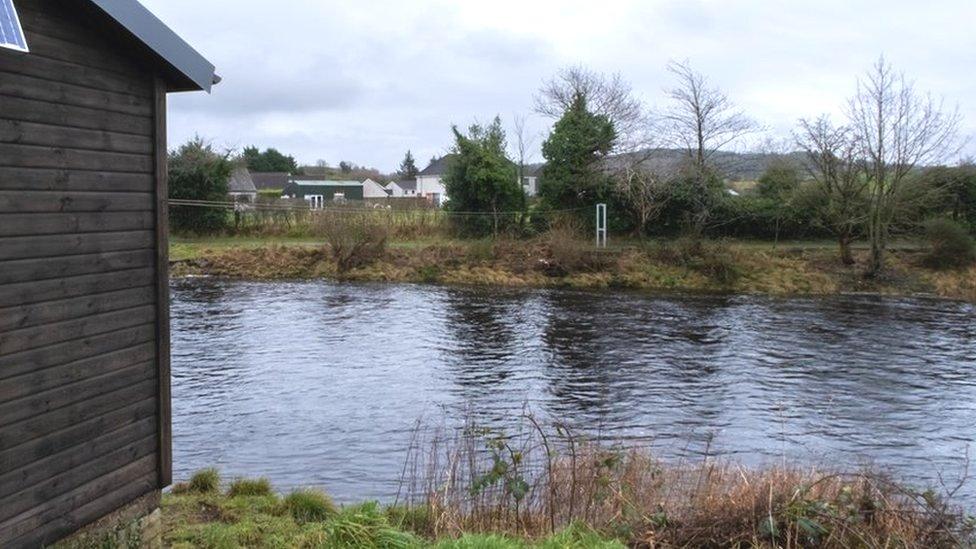Water scarcity: Crop failure warning as ban comes into force in Fife
- Published
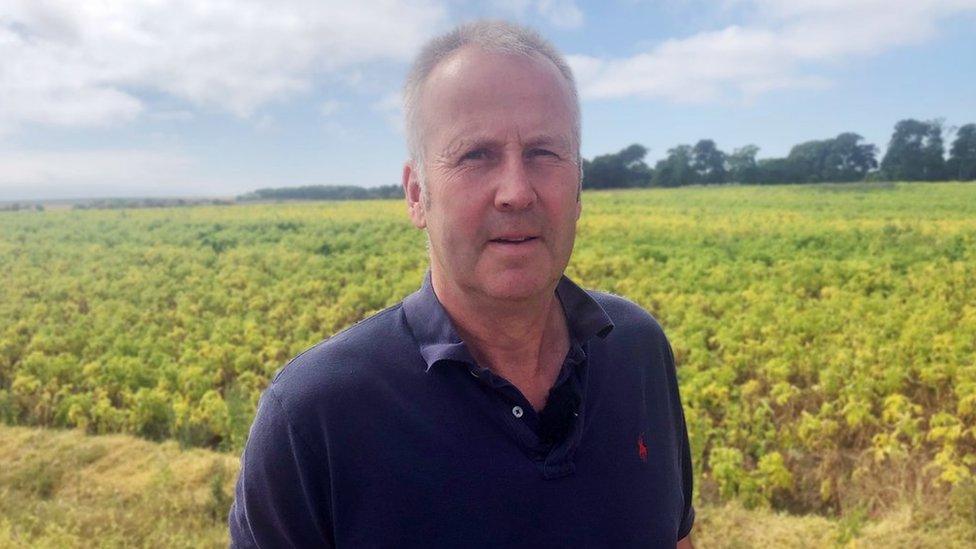
Farmer Iain Brown says broccoli, cauliflower and lettuce crops are at risk
Farmers have warned of "complete failure" of some crops, as a ban on taking river water has come into force in Fife.
The Scottish Environment Protection Agency (Sepa) suspended the majority of water abstraction licences on the River Eden from Sunday.
The National Farmers Union (NFU) said it was devastating for agriculture.
A significant scarcity warning was also issued for the River Tweed in the Borders - where a ban could follow.
It comes as Scotland faces a yellow weather warning for thunderstorms on Sunday and Monday.
However, five months of below average rainfall have seen river levels fall significantly in the south and east of the country.
Fife farmer Iain Brown, chair of NFU Scotland's horticulture committee, called for irrigation to be permitted for high risk crops such as broccoli, cauliflower and lettuce.
Mr Brown said his local vegetable co-operative harvested £1m of broccoli and cauliflower each week.

Scotland's water scarcity plan
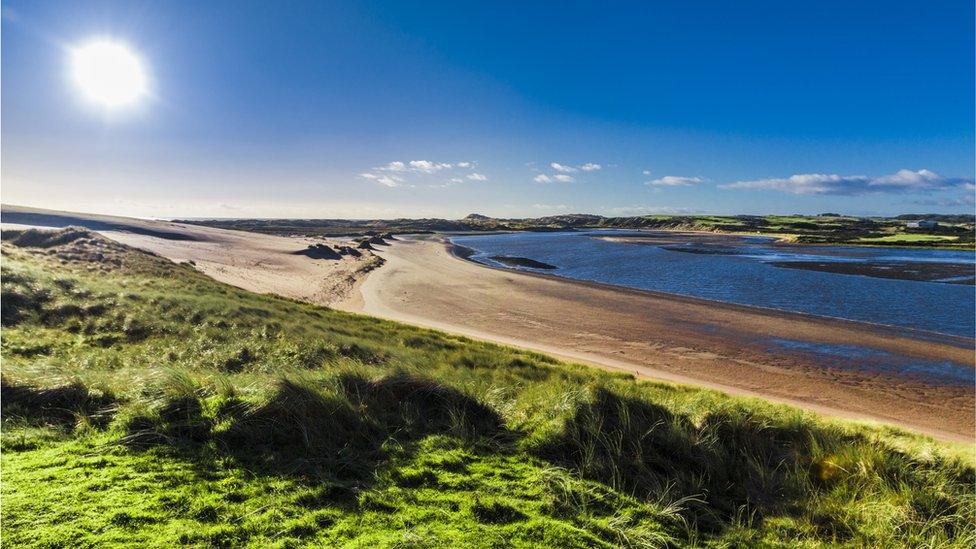
Scotland's natural water levels are categorised by Sepa into five grades - with necessary advice for businesses at each alert level.
Normal - Water can be taken from sources as usual.
Early warning - Industries should consider how they can use water more efficiently.
Alert - Industries irrigating land should check equipment, not overspray and irrigate at night to avoid evaporation.
Moderate scarcity - Industries should reduce the amount of water they take, stagger use with others nearby or switch to other supplies.
Significant scarcity - Water resources are becoming scarce. Industries should switch supplies or stop taking water altogether.

He told BBC Scotland: "At the moment they are losing £250,000 of that. That could go up to £500,000 if this ban stays in place."
"These crops are not just for fresh produce going on the shelves in the coming weeks.
"We are also at the start of the freezing season where we are supplying product for the rest of the year.
"The decision means there is going to be less Scottish locally produced vegetables on the shelves this summer and winter."
Sepa said it was working closely with farmers affected by the ban and that officers visit premises to ensure compliance.
The environment agency said the main stem of the River Eden had only been lower in 1989.
Flows in Kemback in Fife have not been as low since 2003 and Strathmiglo is also experiencing its most prolonged low flow period on record.
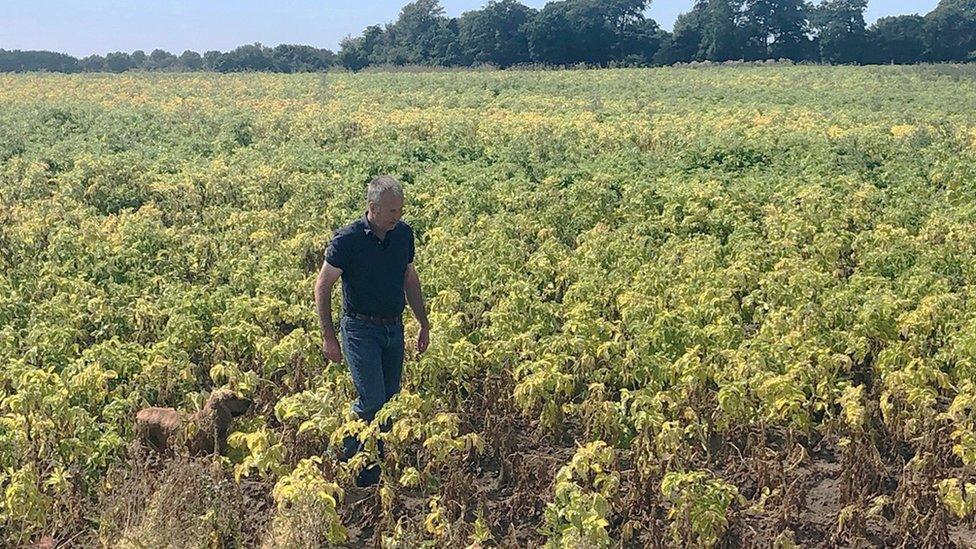
Mr Brown said his local vegetable co-op harvests £1m of broccoli and cauliflower each week
A Significant Scarcity warning was been issued in the Borders. Mouthbridge at Blackadder Water dropped to its lowest flow since 1974.
Sepa said farmers were being contacted and any abstraction suspensions in this area would take effect early next week.
Abstraction is the process of taking water from a river, loch or other natural source.
David Harley, Sepa's chief officer circular economy, said: "Having to impose suspensions underlines the severity of the conditions being experienced in the east of Scotland this summer.
"It is not a step we take lightly, but the evidence is clear, and it is one we can no longer avoid."
NFU Scotland said it was inevitable that consumers would be hit in the pocket.
Iain Brown added: "We have got energy costs that are doubling and this is going to lead to food inflation.
"Without the help of increasing prices at the farm gate growers are not going to be prepared to take the risk to grow these crops."
Related topics
- Published12 August 2022
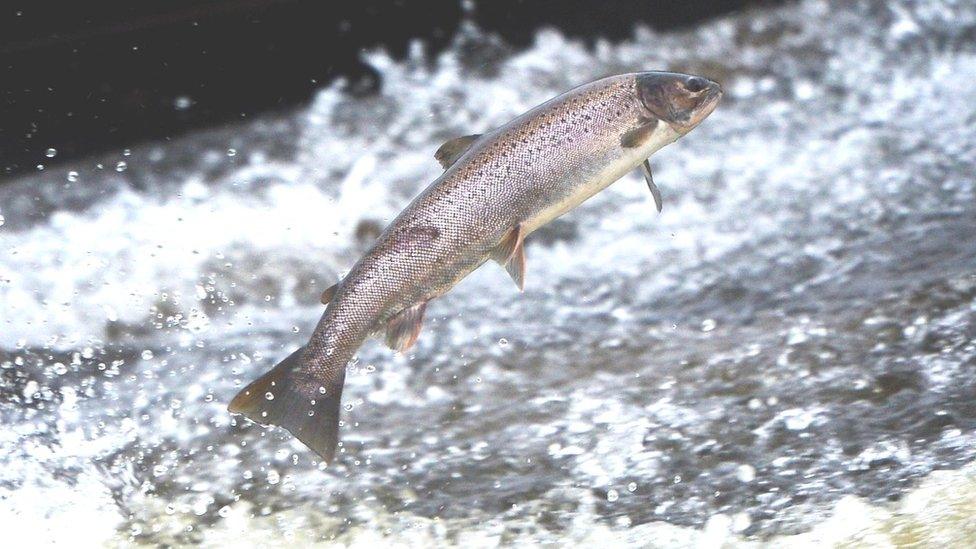
- Published5 August 2022
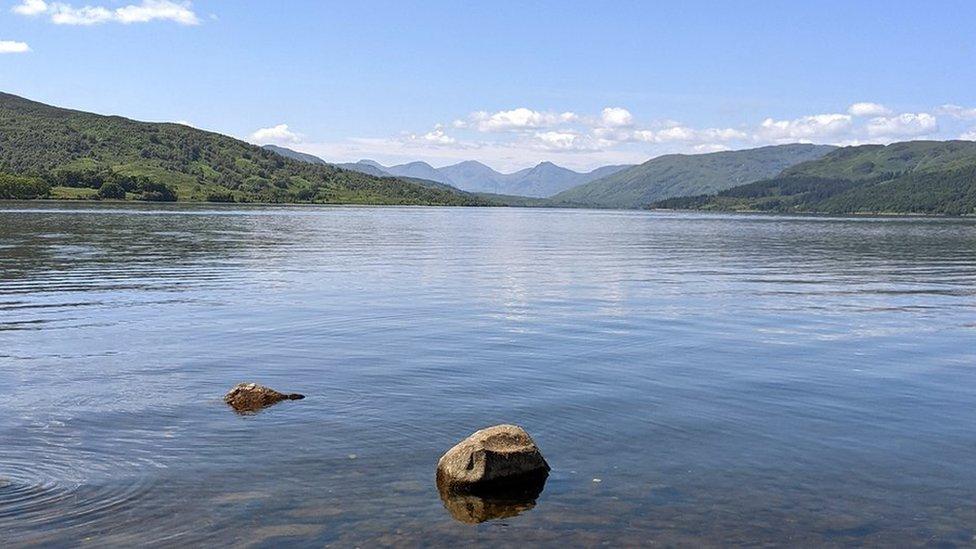
- Published5 August 2022
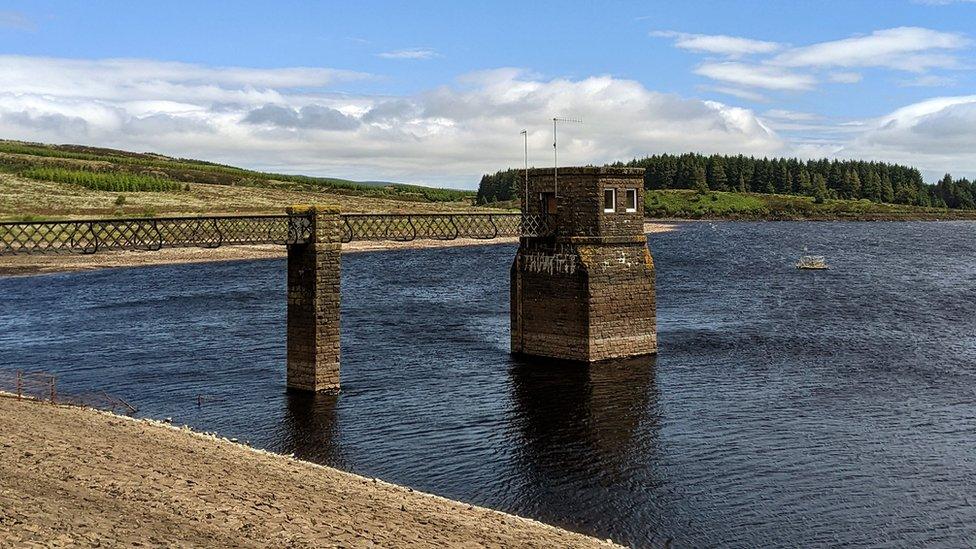
- Published23 July 2022
